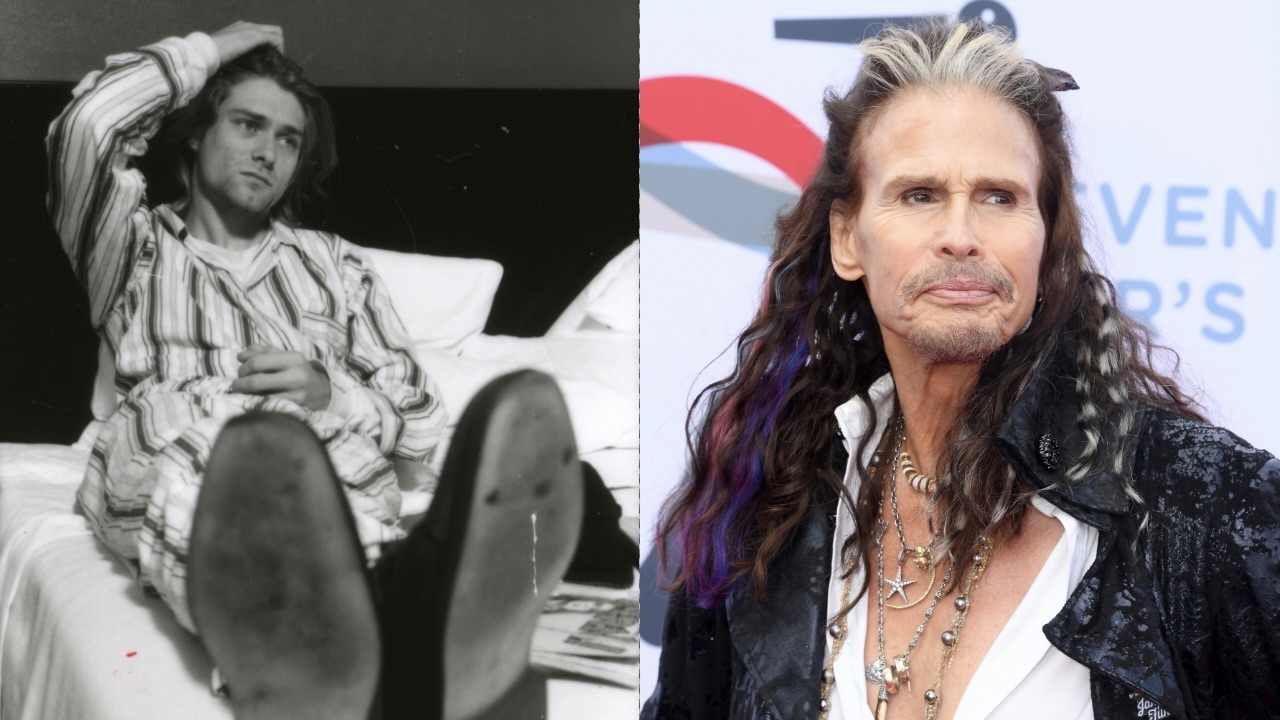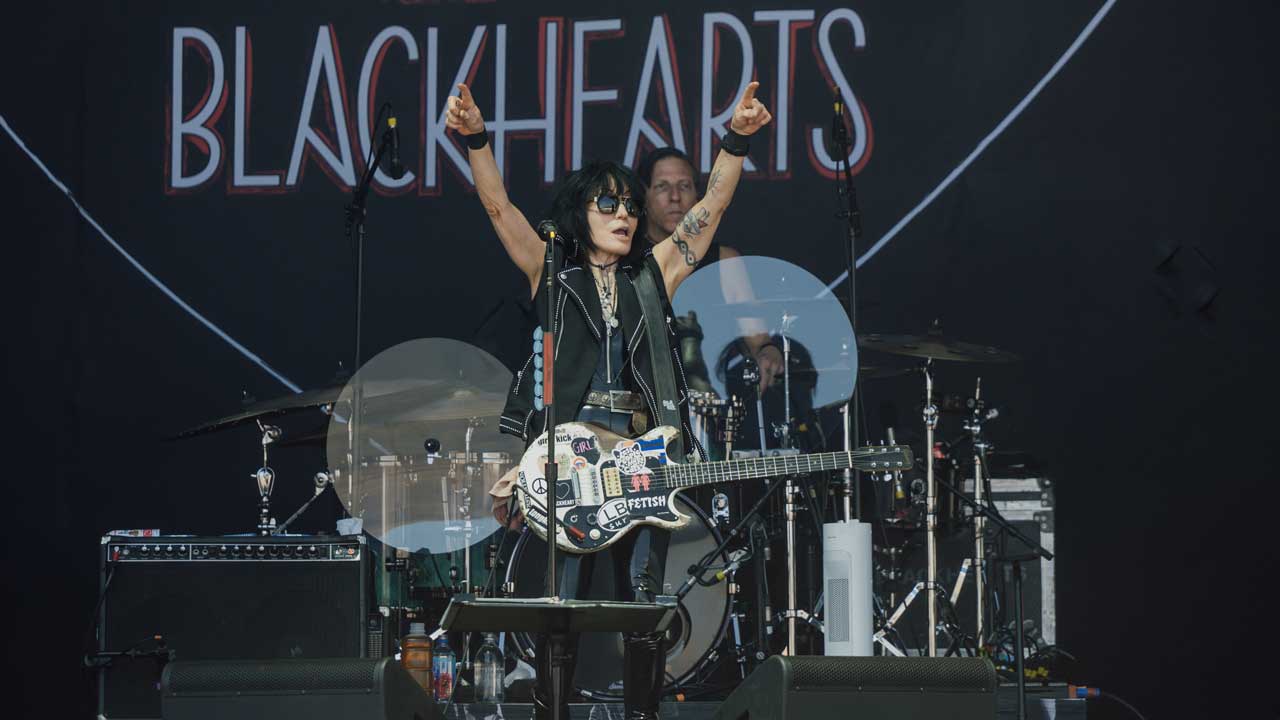When Aerosmith's Steven Tyler offered to help Nirvana's Kurt Cobain kick heroin, Cobain's response was savage: "This guy didn't have to die," Tyler later maintained
Aerosmith's Steven Tyler knows only too well the appeal, and consequences, of taking heroin, which is why he offered to help Kurt Cobain kick his habit

"Take the best orgasm you've ever had, multiply by 1000, and you're still nowhere near it."
These are the words which Ewan McGregor's character Renton uses to explain the allure of heroin in Danny Boyle's 1996 film adaptation of Irvine Welsh's acclaimed debut novel Trainspotting. Three years later, this writer asked former heroin addict Steven Tyler, Aerosmith's frontman, whether he could relate to this.
"Oh no, it's much better than that," Tyler answered sincerely, before delivering a crucially important addendum. "At first..."
Speaking to People magazine in 1988, Tyler confessed that his own past drug use involved taking "heroin, coke, Valium, anything that anyone came near with."
"I have an addictive personality so I found certain drugs I loved and didn't stop to the point of hurting my children, hurting my life, hurting my family, hurting my band," he admitted on Fox News programme OBJECTified in 2018. "There was a point where I didn't have a band and I didn't care."
As he watched Nirvana's meteoric rise in the early '90s, Steven Tyler says he recognised the "pain" in Kurt Cobain's eyes and later discovered that Nirvana's frontman was using heroin. In a bid to try to help the younger musician avoid pitfalls of which he had personal experience, Aeromith's frontman went as far as contacting Nirvana's management in 1992 to enquire about getting Cobain's phone number to set up a heart-to-heart chat with the vocalist/guitarist.
In Everybody Loves Our Town, the definitive oral history of grunge, Gold Mountain Entertainment's Janet Billig, recalled, "Right when It started coming out that Kurt was doing drugs, I remember Steven Tyler called and wanted to help. I told Kurt, Holy shit, Steven Tyler called my office and he wants to help you. Can I give him your number?' And he was like, 'Steven Tyler got to be a junkie for 18 fuckin' years. I've only been doing drugs for an hour'."
Like many drug users, Cobain was somewhat in denial about the extent of his drug use.
"It’s not my fucking fault that anyone knows that I did heroin," he told Details magazine writer Gavin Edwards in July 1993. "I’ve never talked about it. When I’m high, it’s really obvious. That’s why I’ve never gone out in public on it. I tried as hard as I could to keep it from everyone.
"I just hope to God nobody is influenced to do drugs because of me," Cobain continued. "I definitely have a responsibility to talk negatively about heroin. It’s a really really evil drug—I think opiates are directly linked to Satan."
The singer then told Edwards that he was no longer capable of using heroin, stating, "now if I take heroin it makes me vomit right away." The very next week, on July 23, while in New York to play the Roseland Ballroom, the singer overdosed on 'Bodybag' heroin, and could have died but for the quick thinking of Nirvana's UK press officer Anton Brookes, and Kurt and Courtney’s nanny, Michael ‘Cali’ DeWitt.
This near-death experience may have been on Cobain's mind when he finally met Steven Tyler face-to-face the following month, backstage at Aerosmith's August 12 show at Portland Memorial Coliseum, in the company of Krist Novoselic and Dave Grohl. Tyler took Cobain aside and spoke about 12-Step recovery groups
"He wasn’t preaching,” Novoselic remembered to writer Charles Cross, as related in definitive Cobain biography Heavier Than Heaven, “just talking about similar experiences he’d been through. He tried to give him encouragement."
Within nine months, after discharging himself from a Los Angeles rehab facility, Cobain was found dead at his home in Seattle. Interviewed on US TV show Turning Point ( see below) the week after Cobain's body was found, Steven Tyler admitted, "I'm angry about Kurt. This guy didn't have to die."
The latest news, features and interviews direct to your inbox, from the global home of alternative music.

A music writer since 1993, formerly Editor of Kerrang! and Planet Rock magazine (RIP), Paul Brannigan is a Contributing Editor to Louder. Having previously written books on Lemmy, Dave Grohl (the Sunday Times best-seller This Is A Call) and Metallica (Birth School Metallica Death, co-authored with Ian Winwood), his Eddie Van Halen biography (Eruption in the UK, Unchained in the US) emerged in 2021. He has written for Rolling Stone, Mojo and Q, hung out with Fugazi at Dischord House, flown on Ozzy Osbourne's private jet, played Angus Young's Gibson SG, and interviewed everyone from Aerosmith and Beastie Boys to Young Gods and ZZ Top. Born in the North of Ireland, Brannigan lives in North London and supports The Arsenal.
